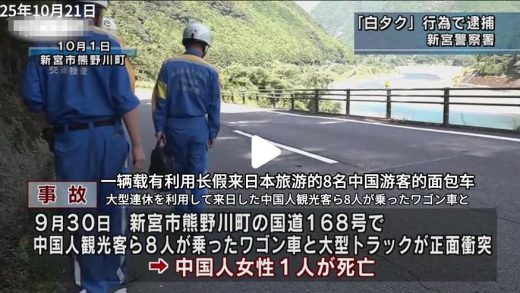I. Industry Risk Analysis
(1) Policy Risk
The microalgae biofuel industry currently faces significant risks at each stage of the policy lifecycle:
– Policy Formation Stage: The support frameworks for green energy in various countries are not yet mature. There are ambiguities and regional differences in subsidy policies, carbon trading rules, etc. It is difficult for enterprises to predict long – term investment returns.
– Policy Implementation Stage: There is a risk of delayed implementation. In some countries, supporting measures such as technical standards and tax incentives have not been promptly followed up, leading to a sharp increase in production costs.
– Policy Adjustment Stage: Due to the dynamic changes in international energy strategies, if traditional energy interest groups exert pressure or the priority of short – term emission reduction targets declines, the industry support may suddenly decrease. Enterprises may even face market access barriers caused by changes in carbon emission accounting rules, which increases the uncertainty of technology commercialization.
(2) Economic Risk
Entrepreneurs entering the microalgae biofuel industry face significant risks from economic cycle fluctuations:
– Currently, the global economic recovery expectation coexists with a high – interest – rate environment. The financing cost in the clean energy sector has risen, and short – term liquidity has tightened, putting pressure on the capital chain of capital – intensive biofuel projects.
– During an economic downturn, the prices of traditional energy sources such as oil tend to fall, weakening the price competitiveness of microalgae fuels. During an economic upswing, over – investment in the biofuel sector may occur due to excessive capital enthusiasm, resulting in technology homogenization and over – capacity.
– In addition, the global carbon trading market is affected by economic fluctuations, leading to instability on the demand side. The risk of subsidy policy adjustments with the fiscal cycle intensifies, and the profit models of enterprises are easily squeezed from both sides, resulting in a cash – flow gap.
(3) Social Risk
The microalgae biofuel industry faces the risk of generational consumption segmentation:
– The younger generation has a high acceptance of new energy technologies but lacks actual consumption decision – making power. The middle – aged consumer group, the main consumer force, pays more attention to energy prices and stability and has insufficient trust in cutting – edge technologies.
– The contradiction between the tightening policies forced by the environmental awareness of Generation Z and traditional energy subsidies may trigger public doubts about the “pseudo – environmental friendliness” of the industry.
– The speed of generational wealth transfer is slower than the technology iteration cycle, leading to a sharp increase in market education costs. In an aging society, the sensitivity to energy prices increases, easily creating a dilemma where “advanced technology is resisted by society”.
(4) Legal Risk
The legal risks faced by the microalgae biofuel industry are mainly concentrated in policy compliance and operational legitimacy:
– Environmental protection regulations have strict requirements for wastewater treatment in algae cultivation and carbon emission standards. Violations will result in high fines or even production suspension.
– The biotechnology patent landscape is dense. Start – up enterprises are prone to getting involved in infringement disputes due to similar technology paths.
– The approval process for fuel production qualifications is complex. Different local regulatory standards may lead to project delays.
– Changes in carbon trading policies may completely disrupt the original business models. The reduction of government subsidies directly affects the stability of profits.
– The data security law requires the establishment of a perfect protection mechanism for the algal species gene database. Data leakage will trigger legal liability.
– In the international market, the import and export of biofuels are restricted by green trade barriers. Double environmental certifications increase compliance costs.
II. Entrepreneurship Guide
(1) Suggestions on Entrepreneurial Opportunities
The current core entrepreneurial opportunities in the microalgae biofuel field lie in integrating carbon – neutral policy support with industrial emission scenarios. Use industrial waste gases (such as carbon dioxide from coal – fired power plants) for large – scale microalgae cultivation. Simultaneously develop efficient photobioreactors and low – cost oil extraction technologies. Focus on mandatory emission reduction areas such as aviation fuel and marine fuel. Cooperate with local governments to obtain carbon emission trading allowances. Collaborate with petrochemical enterprises to build pilot projects. Realize circular economy benefits through by – products such as algal residue protein feed, forming a closed – loop business model of “carbon capture – energy conversion – by – product value – added”.
(2) Suggestions on Entrepreneurial Resources
- Focus on industry – university – research cooperation to obtain patent authorizations for core algal species cultivation and photoreactor technologies.
- Prioritize cooperation with local government new energy industry incubators to obtain subsidies for pilot – scale test sites.
- Solve the problem of heavy – asset investment through green bonds and carbon emission right pledge financing.
- Collaborate with large – scale energy groups to establish a closed – loop industrial chain of “algal species supply – cultivation trusteeship – carbon sink repurchase”.
- Connect with the straw comprehensive utilization project of the Ministry of Agriculture and Rural Affairs to graft the algal – based feed production module and reduce raw material costs.
- Form a composite team with experience in microbial engineering and chemical equipment to transform laboratory results into continuous production.
(3) Suggestions on Entrepreneurial Teams
Entrepreneurs in the microalgae biofuel industry should form interdisciplinary teams (biological engineering + energy conversion + supply chain management). Core members should have both laboratory R & D capabilities and industrial mass – production experience.
– Actively recruit technical experts familiar with the international biofuel certification system and operational talents with channel resources for energy commodities.
– At least one team member should be proficient in the carbon trading mechanism to take advantage of global carbon – reduction policy dividends.
– In the initial stage, the team should be lightweight (5 – 7 people) and establish a project – based cooperation mechanism with scientific research institutions.
– The founder must personally master the industrialization nodes of the core algal species selection technology. At the same time, a partner with the ability to handle government relations in the energy industry should be included.
– It is recommended that the core team holds no less than 70% of the shares to maintain decision – making control over the technology route.
(4) Suggestions on Entrepreneurial Risks
Entrepreneurs in the microalgae biofuel industry should:
– Prioritize the proven large – scale cultivation technology path. Collaborate with scientific research institutions to conduct pilot – scale tests to reduce technical risks.
– Arrange multi – channel financing. Focus on government special subsidies for biomass energy and carbon – trading green financial products to maintain a safe margin of cash flow.
– Establish a policy early – warning mechanism. Continuously track changes in national energy substitution subsidy policies and updates of local environmental protection emission standards, and adjust production processes in advance.
– Adopt the pre – order model to lock in the procurement intentions of large – scale energy enterprises. Hedge market price fluctuation risks by signing long – term supply agreements.
– Build a distributed raw material supply network. Establish strategic cooperation on algal species supply with coastal saline – alkali land governance project parties to disperse the risk of a single supply chain. Simultaneously optimize the process parameters of microalgae harvesting and oil extraction to gradually reduce the unit production cost to the market – oriented critical point.





